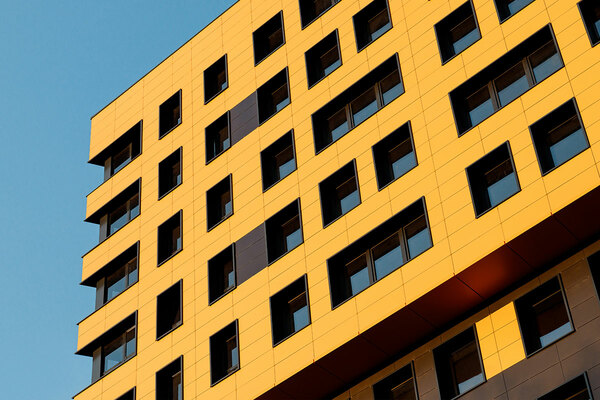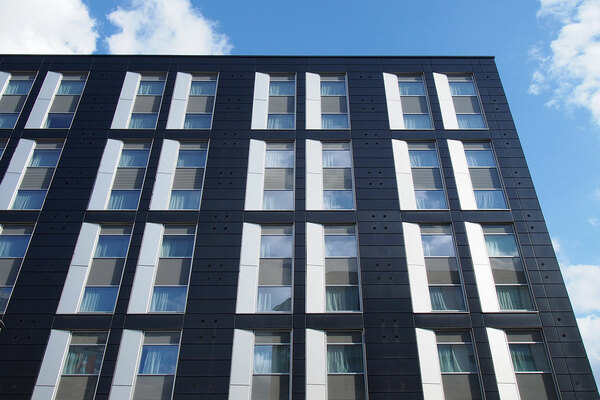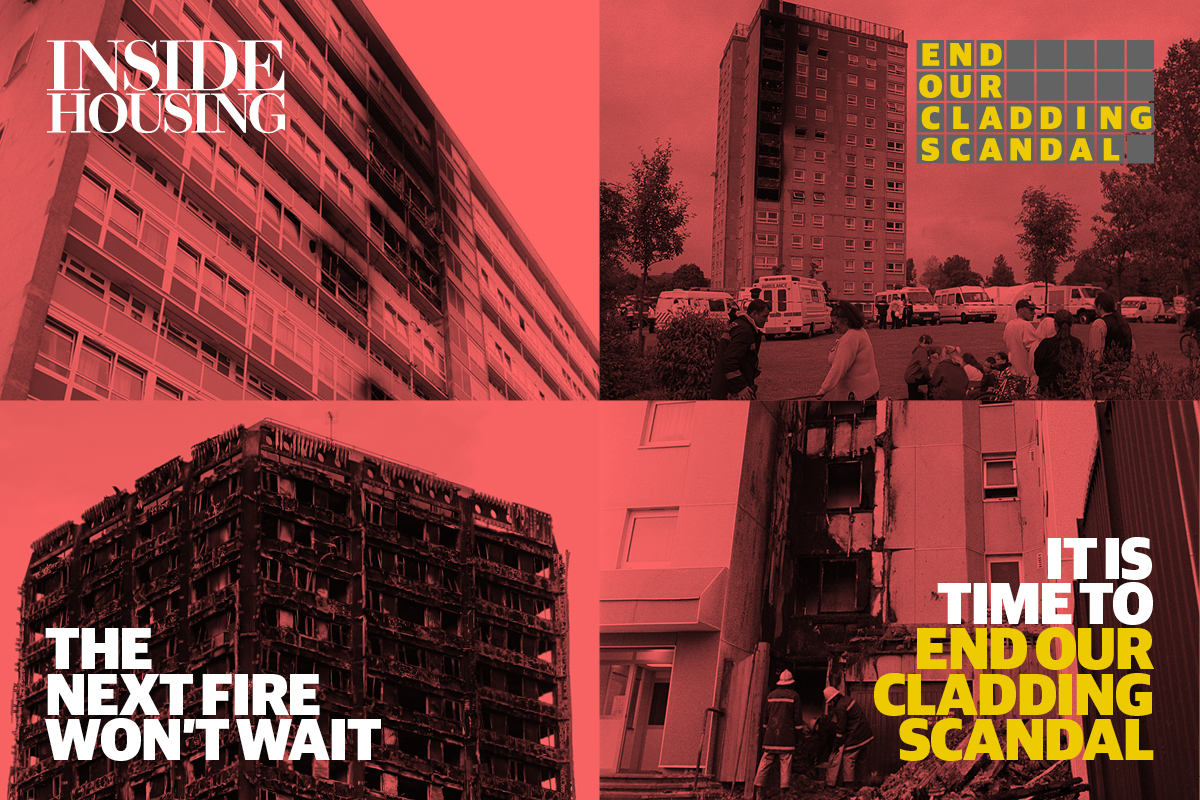Housing association slams unclear fire safety guidance after it spends £840,000 on scheme that passed EWS check
A large London housing association has blamed unclear government guidance around fire safety for spending £840,000 on safety inspections and precautions on a building that was eventually deemed not in need of remediation.
Jamie Ratcliff, executive director of business performance and partnerships at Network Homes, said due to the interpretation of unclear government guidance, the association had “effectively wasted nearly a million pounds” on a building that was adequately safe, labelling it as “shocking”.
Included in that bill was more than £100,000 spent on investigations and tests of cladding systems and £700,000 on a waking watch across the development for five months.
It was only in February this year – 10 months after investigations started – that the development received an official clean bill of health through an EWS check. During that period, several of the development’s leaseholders also saw sales, staircasing and remortgaging attempts fall through.
The block in north-west London, which Network preferred not to name, is made up of 440 apartments across seven blocks, five of which are over 18m. It is covered in Genius Aluminium PlanarPanels and its insulation is Kingspan K15.
The actions taken by Network on the block reflect the confusion around building safety guidance from the government in recent years, with the association having to follow a number of different advice notes and procedures to ensure the safety of the development and give leaseholders the ability to sell.
Mr Ratcliff said: “How many times is this being replicated across the country?
“Wherever else it is happening, residents will be facing undue distress and resources will be diverted away from making safe buildings that do need remediation.”
Network initially began investigations on the block back in April 2019 after government published Advice Note 14, a guidance note which instructed all building owners to inspect their external walls and remove any combustible cladding and fix any poorly installed elements.
After some issues were found with the installation of cavity barriers in the wall, a waking watch was put in place across the development, costing the association £30,000 a week.
Network carried out a BS 8414 test on the building’s materials as instructed in the government’s Advice Note 14, which found that despite some cavity barrier issues the materials performed to the level required under the building regulations and did not require remediation.
The BS 8414 tests are carried out in specialist laboratories, where a full-scale test of the cladding system including cladding materials, insulation, fire breaks and other elements are set alight to see how they burn.
By the time Network saw the BS 8414 completed, the Royal Chartered Institute of Surveyors (RICS) created the EWS form to try to tackle the issue of unsaleable homes.
Despite the intentions, the process has paralysed the flat market, with nearly all banks unwilling to provide mortgages on multi-occupancy buildings both above and below 18m until they receive an EWS form giving a building a clean bill of health.
With their BS 8414 test, they approached a number of fire engineers to get confirmation that the building was compliant through an EWS check but they were not able to due to engineers being unable to secure the appropriate professional indemnity insurance. Network only secured a completed EWS giving the development a clean bill of health in February at a cost of £29,000.
Commenting on the EWS process, Ed Badke, director of building safety at Network Homes, said: “Our experience of getting an EWS1 form at this scheme was time-consuming, complex and expensive. This level of work cannot be sustained across every block of flats that we own – there’s already a shortage of fire engineers to do the work on buildings above 18 metres.
“That’s why we need further guidance from government and the industry on which buildings really require an EWS1 form, so that we can give some assurances to residents in buildings below 18 metres that they are safe in their homes and they won’t have to wait years for an EWS1 form to be produced.”
A Ministry of Housing, Communities and Local Government spokesperson said: “It is right that building owners take the necessary steps to confirm that their buildings are safe and ensure residents are protected while this work takes place – which is what happened in this case.
“We know many leaseholders and building owners are being asked for EWS1 forms unnecessarily, especially for lower-rise buildings. There is other evidence that can prove a building is safe, which we would encourage lenders to accept for valuations.
“We’re also working with professional bodies to address capacity issues in cases where assessments are genuinely needed in order to help resolve this issue urgently.”
Breakdown of Network's costs
- Site access and inspection: £15,900, (April 2019)
- Facade checking: £1,200 (July 2019)
- Consultancy: £1,900 (July 2019)
- Final report: £24,400 (August 2019)
- Total waking watch costs: circa £700,000 (September 2019 – February 2020)
- Report support: £1,300 (October 2019)
- Costs for EWS1 form and coinciding investigations: £29,000, (December 2019)
- BS 8414 test: £50,000-£70,000 (estimate, not yet paid by Network Homes)
- Inspections: £3,100 (November 2019)
- Forensic investigative works: £7,100 (December 2019)
- Forensic investigative works: £3,200 – a portion of this as shared between schemes (December 2019)
- Opening up works: £2,400 (February 2020)
- Legal fees: £2,000


